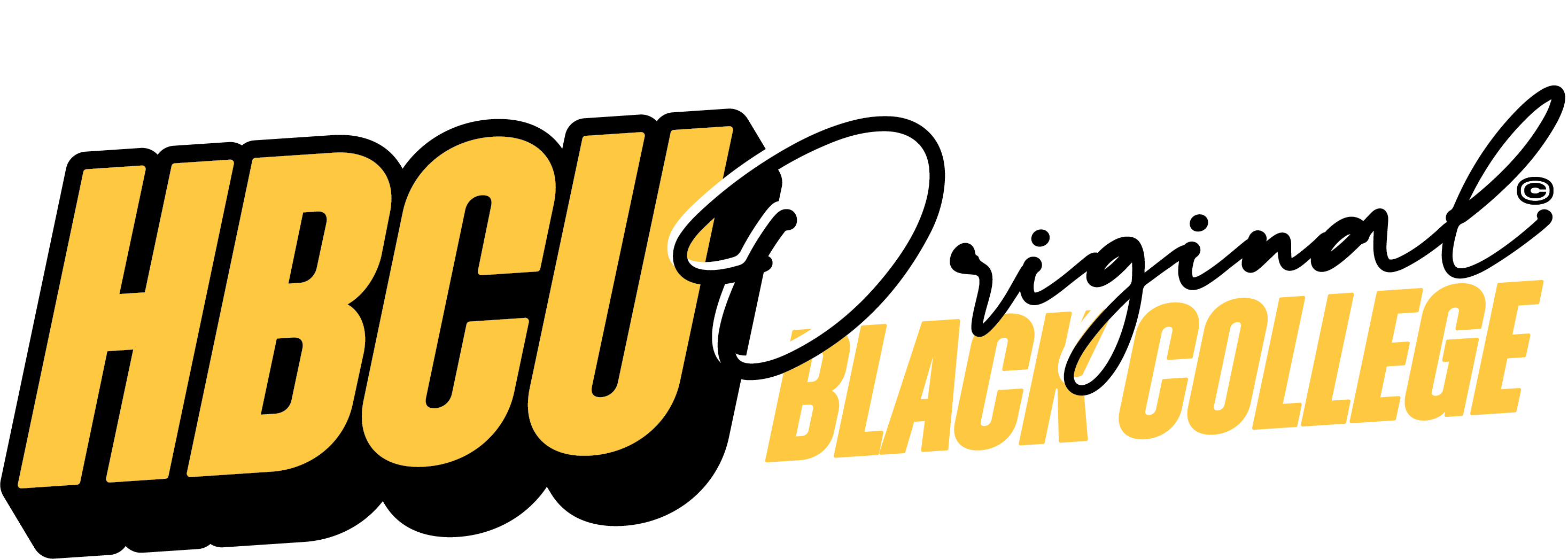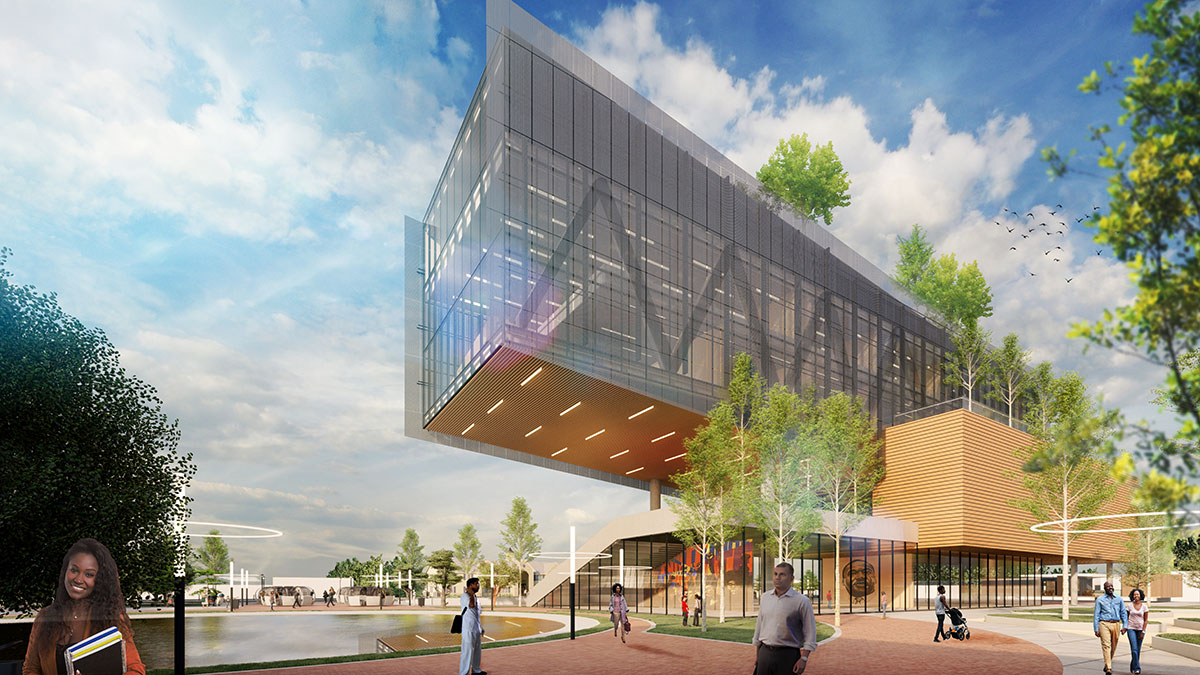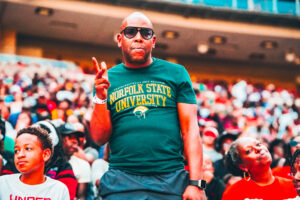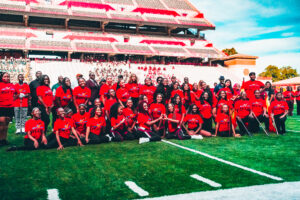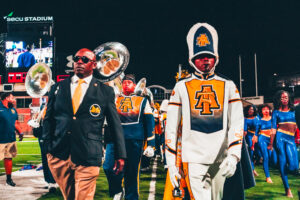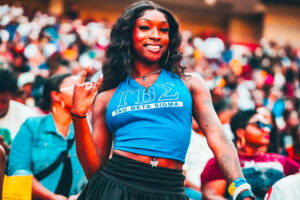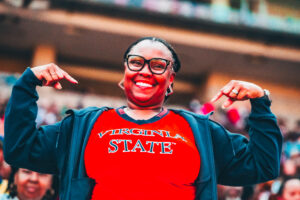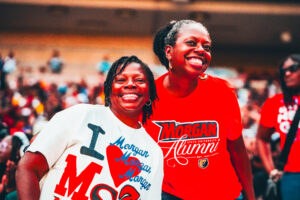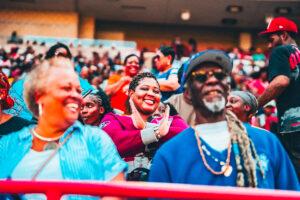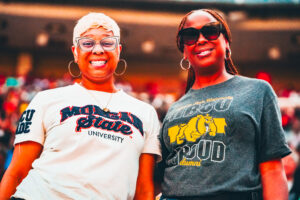Events
2024 Apple’s Arts and Entertainment Accelerator Program for HBCU Students!
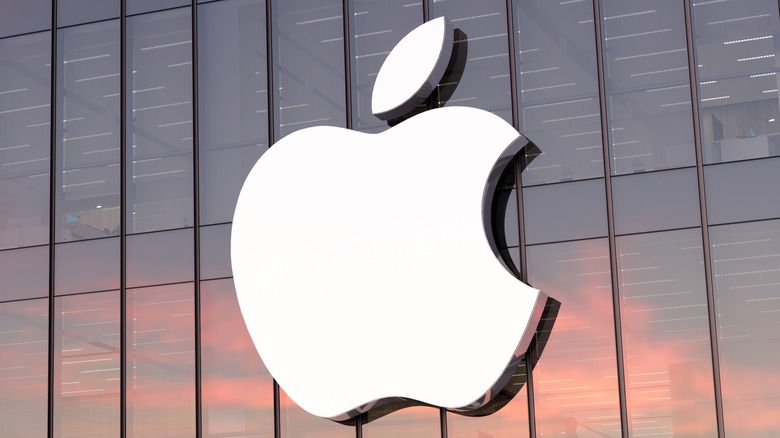
Apple’s Arts and Entertainment Accelerator Program for HBCU Students Has Commenced for the Year!
Apple, in partnership with Southern Company and Propel Center, has started its 2024 initiative aimed at fostering diversity and inclusivity as part of their Racial Equity and Justice Initiative in the arts and entertainment industry. The Arts and Entertainment Accelerator Program for students from Historically Black Colleges and Universities (HBCUs) reflects Apple’s ongoing commitment to supporting underrepresented communities and providing young, talented individuals with the resources and opportunities to succeed in their chosen fields.
Program Overview
The Arts and Entertainment Accelerator Program works closely with 19 HBCUs and hosts 50 HBCU students for an immersive two-week experience. The program started on June 10 at Tennessee State University and will conclude at Clark Atlanta University the week of June 16. The program is designed to equip students with the necessary skills, knowledge, and industry connections to excel in the competitive arts and entertainment sectors. Participants will have the chance to engage with industry leaders, attend workshops, and gain hands-on experience with the latest technology and creative tools provided by Apple.
“Apple is dedicated to empowering the next generation of artists and creators,” said Lisa Jackson, Apple’s Vice President of Environment, Policy, and Social Initiatives. “By investing in HBCU students, we are not only helping to diversify the industry but also ensuring that these talented individuals have the support and resources they need to thrive.”
Key Components of the Program
Workshops and Masterclasses: Students will participate in a series of workshops and masterclasses led by industry professionals, covering various aspects of the arts and entertainment industry, including music production, filmmaking, digital media, and more.
Mentorship Opportunities: The program will pair students with mentors from Apple and its network of industry professionals. These mentors will provide guidance, career advice, and support, helping students navigate their paths in the industry.
Hands-On Projects: Participants will have the opportunity to work on real-world projects using Apple’s state-of-the-art technology. This practical experience is designed to enhance their skills and prepare them for future careers.
Networking Events: Throughout the program, students will attend networking events where they can connect with peers, professionals, and potential employers, building valuable relationships that can support their career growth.
Enhancing Diversity in the Arts and Entertainment Industry
The 2021 launch of the Arts and Entertainment Accelerator Program is part of Apple’s broader $100 million pledge to enhance diversity and inclusion across various industries. By focusing on HBCU students, Apple aims to address the historical underrepresentation and systemic obstacles faced by many people of color.
“We recognize the importance of diverse voices in shaping the future of arts and entertainment,” said Eddy Cue, Apple’s Senior Vice President of Internet Software and Services. “This program is about giving talented HBCU students the opportunities and exposure they need to succeed and make their mark on the industry.”
Impact and Future Prospects
The initiative has been widely praised for its potential to create significant positive impact. By providing HBCU students with direct access to resources and industry leaders, Apple is helping to bridge the gap between education and professional success for underrepresented groups.
“This program is a game-changer for HBCU students aspiring to enter the arts and entertainment industry,” said Dr. Roslyn Clark Artis, President of Benedict College. “It not only provides them with critical skills and knowledge but also opens doors to invaluable opportunities and networks.”
Looking ahead, Apple plans to continue and expand the Arts and Entertainment Accelerator Program, potentially including more HBCUs and increasing the number of participants. The success of this initiative could serve as a model for other companies seeking to invest in diversity and inclusion within their industries.
Events
💰 Dorm Room Deep Dive: The True Cost of the HBCU Experience

The choice to attend a Historically Black College and University is an investment in legacy, culture, and career trajectory. But for thousands of students and their families, the cost of that legacy comes with a profound financial strain, translating into high debt and a constant hustle.
This is a look beyond the sticker price, examining the Dorm Room Deep Dive into the economics of student life and the rising cost of the most essential American investment.
The Net Price Gap: Where the Financial Aid Stops
The most critical figure in an HBCU student’s financial life is not the tuition—it’s the net price, the amount remaining after all grants and scholarships are applied. For students at Historically Black Colleges and Universities, that gap is larger and more persistent than almost anywhere else.
Key Facts: The Affordability Challenge
| Financial Metric | HBCU Student Reality | Context & Impact |
| Unmet Need | Black students face the highest average unmet financial need, often exceeding $9,000 annually. | This is the gap students must close with loans, family contributions, or income. |
| Debt Burden | 86% of HBCU graduates leave with student loan debt. | The median debt at graduation is over $34,000. |
| The Wealth Gap | Four years after graduation, Black borrowers owe, on average, $25,000 more than their White peers. | This disparity is due to lower family wealth, slower repayment, and often greater borrowing for graduate school. |
While institutional and federal grant aid is robust—with over 85% of HBCU undergraduates receiving some form of grant assistance—the aid simply hasn’t kept pace with the comprehensive cost of attendance.
📈 2025-2026: Cost Projections and the Rising Tide
For the 2025-2026 academic year, the average total Cost of Attendance (COA) for an HBCU student living on campus is projected to fall in the range of $32,000 to $35,000, with many private institutions exceeding $55,000.
This rise is driven not just by tuition, but by escalating prices across the board.
The “Hidden Inflation” of College Life
The yearly tuition hike, often projected around 3.5% to 4.0% for the upcoming year, is only part of the equation. Students are getting hit hardest by non-tuition costs:
-
Mandatory Fees: Fees for technology, health services, and campus facility debt are rising faster than tuition. A student might see a flat tuition rate but a 10% jump in their “Student Services Fee” that is non-negotiable.
-
Room and Board: Housing costs are increasing due to construction, maintenance, and utility expenses. This often includes mandatory meal plans—a fixed cost that may not fully align with the student’s actual weekly grocery or dining budget.
-
Textbooks and Course Materials: Despite the shift to digital, the cost for access codes and specialized online materials can easily top $1,500 annually, draining financial aid refunds long before the semester ends.
-
Transportation and Loan Fees: An often-overlooked cost is the expense of traveling to and from campus. Furthermore, the small but mandatory loan origination fees on federal loans mean students often receive less than the amount they actually borrowed.
The Future Price Tag
If costs continue to rise at an average annual rate of 3.25%, a student entering an HBCU in 2025 with a $35,000 COA would face a cumulative four-year sticker price of over $147,000 by graduation in 2029. This is the staggering financial trajectory that underpins every student’s academic planning.
🤝 The Lifelines: Funding Your Future & Lessening the Blow
While the costs are daunting, there are powerful financial lifelines available to HBCU students that can significantly reduce the need for high-interest private loans. Success requires proactive planning and a deep dive into targeted resources.
Targeted Resources for HBCU Students
| Resource Type | Key Programs & Organizations | How They Help |
| Federal Government | FAFSA (Free Application for Federal Student Aid), Pell Grant (up to $\sim$7,395 for 2025-26), Federal Work-Study | Provides the foundational need-based aid. Pell Grants are crucial “free money” that does not have to be repaid. |
| HBCU Affiliates | UNCF (United Negro College Fund), TMCF (Thurgood Marshall College Fund) | These organizations offer hundreds of scholarships specifically for students attending their member institutions, often sponsored by major corporations (e.g., Apple, Google, Lowe’s). |
| State Grants | State-Specific Aid (e.g., Georgia’s HOPE, Ohio College Opportunity Grant) | Many states offer grants that are often tied to in-state enrollment and financial need. Check your state’s Department of Higher Education website. |
| Innovative Aid | Student Freedom Initiative | A non-profit offering an income-contingent funding alternative, particularly for STEM majors at Minority Serving Institutions, reducing reliance on traditional loans. |
| Private/Need-Based | Ron Brown Scholarship, ABOUT LOVE Scholarship, NAACP Scholarships | Large, competitive scholarships that target high-achieving, community-focused, and financially disadvantaged students. |
Practical Strategies to Reduce the Blow
-
Maximize “Free” Money: Apply for every external scholarship possible, focusing on awards specific to your major, state, or community involvement. Do not rely solely on your institution’s aid package.
-
Cut Textbook Costs with OER: Before buying new textbooks, check if your campus or department participates in Open Educational Resources (OER) initiatives, which provide free, openly licensed digital course materials. This can save hundreds per semester.
-
Leverage Institutional Discounts: Research which HBCUs offer universal in-state tuition rates or tuition waivers for specific student demographics (e.g., in-state students, high-achieving transfer students).
-
Work-Study First: If you must work, prioritize Federal Work-Study positions. These are subsidized by the government, meaning the university’s budget is less strained, and the earnings don’t count against your FAFSA eligibility for the following year.
-
Audit Your Fees: When reviewing your bill, question any non-essential fees (e.g., expensive parking passes, optional insurance). Every dollar saved against the non-tuition cost is a dollar that doesn’t become future debt.
✊ The Campus Side Hustle: Economy of Resilience
With a $9,000 average unmet need hovering over their heads, HBCU students have become masters of the “side hustle” economy, leveraging the unique cultural environment of the campus to generate income.
This is a necessary culture of entrepreneurial resilience, where skills are currency:
-
The Beauty & Styling Network: A student with braiding or barbering skills can generate hundreds of dollars per week, with prices spiking during major events like Homecoming. This is income used directly for rent, car notes, or to pay down a tuition balance.
-
The Food & Delivery Gap: Beyond national delivery apps, students often run micro-businesses selling homemade food (plates, snacks, or Sunday dinners) out of their apartments or dorms, using the dense campus environment as a ready market.
-
Academic Services: Students with a high GPA can earn money as tutors or by preparing intensive study guides for challenging courses.
This constant push to earn ensures cultural participation and personal solvency, but it comes at a cost: time. Every hour spent hustling is an hour taken away from studying, networking, or sleep, creating a heavy burden of academic and financial stress that is part of the modern HBCU reality.
The value of the HBCU experience—the incomparable network, the sense of community, and the unparalleled professional launchpad—is undeniable. But to access that value, the average student must first conquer a formidable financial mountain. The Dorm Room Deep Dive confirms that the Black college experience is not just an academic journey; it is a profound lesson in economic resilience.
🔗 The Lifelines: Essential Financial Aid Resources
For students and families navigating the financial challenges of the HBCU experience, these organizations offer critical financial aid, scholarships, and innovative funding solutions.
| Resource | Organization | Direct Link |
| Federal Aid | Free Application for Federal Student Aid (FAFSA) | https://studentaid.gov/h/apply-for-aid/fafsa |
| HBCU Affiliate | United Negro College Fund (UNCF) Scholarships | https://uncf.org/scholarships |
| HBCU Affiliate | Thurgood Marshall College Fund (TMCF) Scholarships | https://tmcf.org/students/explore-scholarships-programs/ |
| Innovative Funding | Student Freedom Initiative (SFI) | https://studentfreedominitiative.org/sfi-program/ |
| Private Scholarship | Ron Brown Scholar Program | https://ronbrown.org/rbs-login/ |
| Private Scholarship | Shawn Carter Foundation (formerly ABOUT LOVE) | https://shawncartersf.com/scholarship/ |
| Non-Profit Aid | NAACP Scholarships | https://naacp.org/find-resources/scholarships-awards-internships/scholarships |
| Cost Strategy | U.S. Department of Education: OER Resources | (Link to general Open Educational Resources search can be added here if desired) |
Campus
The Sound of the Yard: The Legacy of HBCU Marching Bands
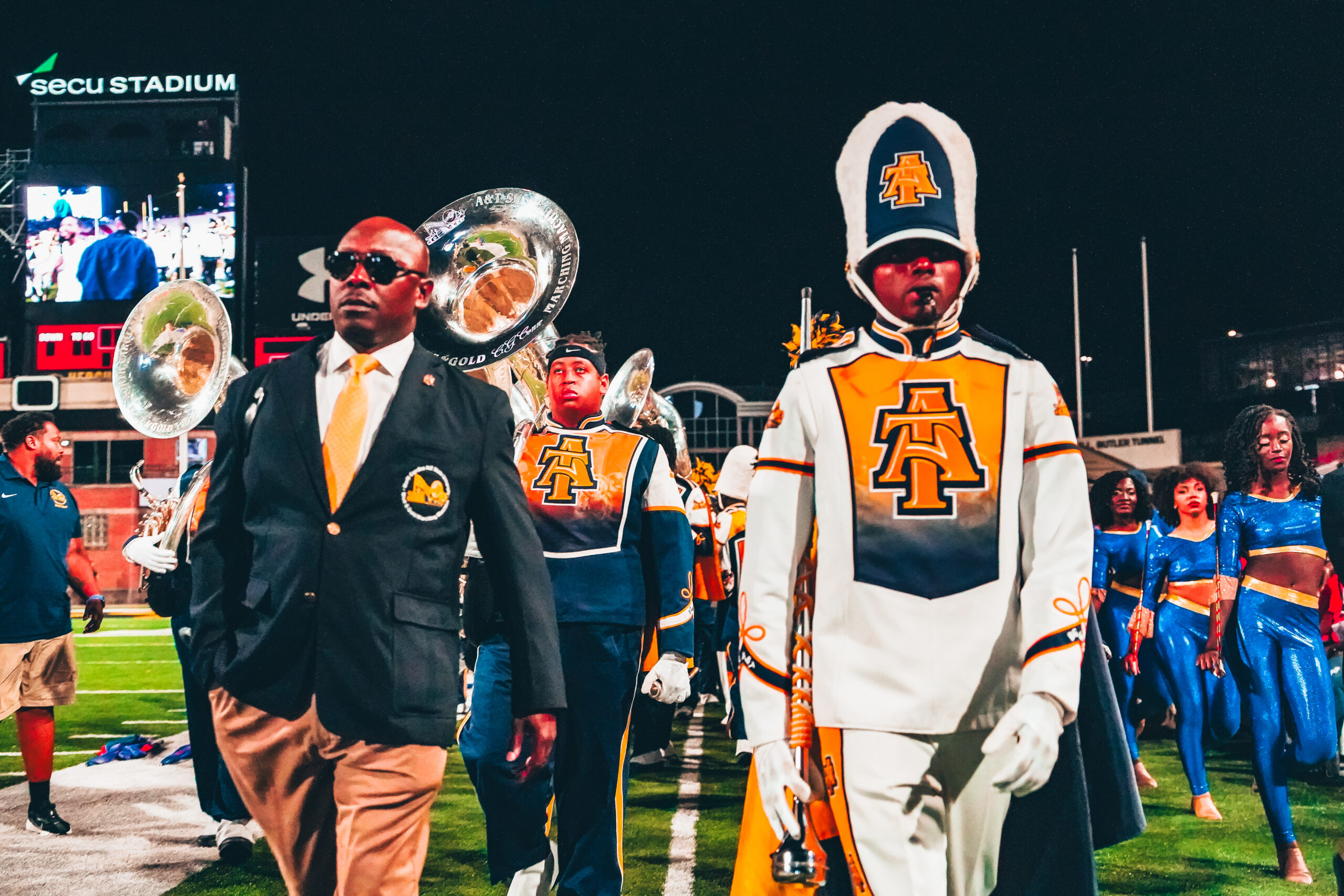
When the drums start rolling and the brass section blasts the first note, something magical happens — the crowd rises, feet start stomping, and the stadium becomes a stage. That’s the power of HBCU marching bands — the lifeblood of the yard and the heartbeat of Black college pride.
Across the country, these bands have redefined what it means to perform. It’s not just about music — it’s about precision, power, and pride. Each halftime show tells a story of community, culture, and creative excellence that stretches from the campus yard to the world stage.
Legendary programs like The Human Jukebox of Southern University and The Sonic Boom of the South from Jackson State University have set the tone for decades, known for their dynamic choreography and iconic sound. The Marching 100 of Florida A&M University revolutionized marching band performance with intricate formations and high-energy brass arrangements, influencing college and high school bands globally.
But they’re not alone in this legacy.
-
The Ocean of Soul (Texas Southern University) brings unmatched groove and funk to every performance.
-
The Aristocrat of Bands (Tennessee State University) made history as the first HBCU band to win a GRAMMY Award in 2023 for “The Urban Hymnal.”
-
The Blue and Gold Marching Machine (North Carolina A&T State University) blends traditional sound with modern flair, leading parades like the Macy’s Thanksgiving Day Parade.
-
The Marching Storm (Prairie View A&M University) commands attention with style and showmanship, competing toe-to-toe with any major college program.
-
The Spartan Legion (Norfolk State University) continues to uphold the proud musical traditions of the MEAC and SWAC.
-
The Marching Maroon & White (Alabama A&M University) exemplifies disciplined performance and HBCU pride.
Additional extraordinary programs include:
-
The Trojan Explosion (Virginia State University) — high-energy performances with innovative formations.
-
The Red Sea of Sound (Winston-Salem State University) — signature style and powerful brass arrangements.
-
The Symphony of Soul (Bowie State University) — blending soulful melodies with marching precision.
-
The Marching Force (Hampton University) — a legacy of excellence on every field.
-
Showtime Band (Howard University) — dynamic, creative, and nationally recognized performances.
-
Sound Machine (North Carolina Central University) — a staple of modern HBCU band excellence.
From local parades to the Honda Battle of the Bands, HBCU bands bring an experience that transcends entertainment — it’s cultural storytelling through sound.
Their influence has reached far beyond the yard — from collaborations with Beyoncé’s Homecoming to halftime shows at the Super Bowl. These bands symbolize the discipline, excellence, and creativity that define HBCU culture.
For the students who march, every note is a tribute — to their ancestors, their schools, and the legacy they represent. The sound of the yard will always be more than music — it’s the soul of the HBCU experience.
#HBCUOriginal | #TheSoundOfTheYard | #BlackCollegeCulture | #HBCUBands
📺 Visit HBCUOriginal.com | 🎥 Watch more at YouTube.com/@THEHBCUORIGINAL
Events
20 Players, 2 Coaches Suspended After Fight at Fort Valley State Homecoming Game
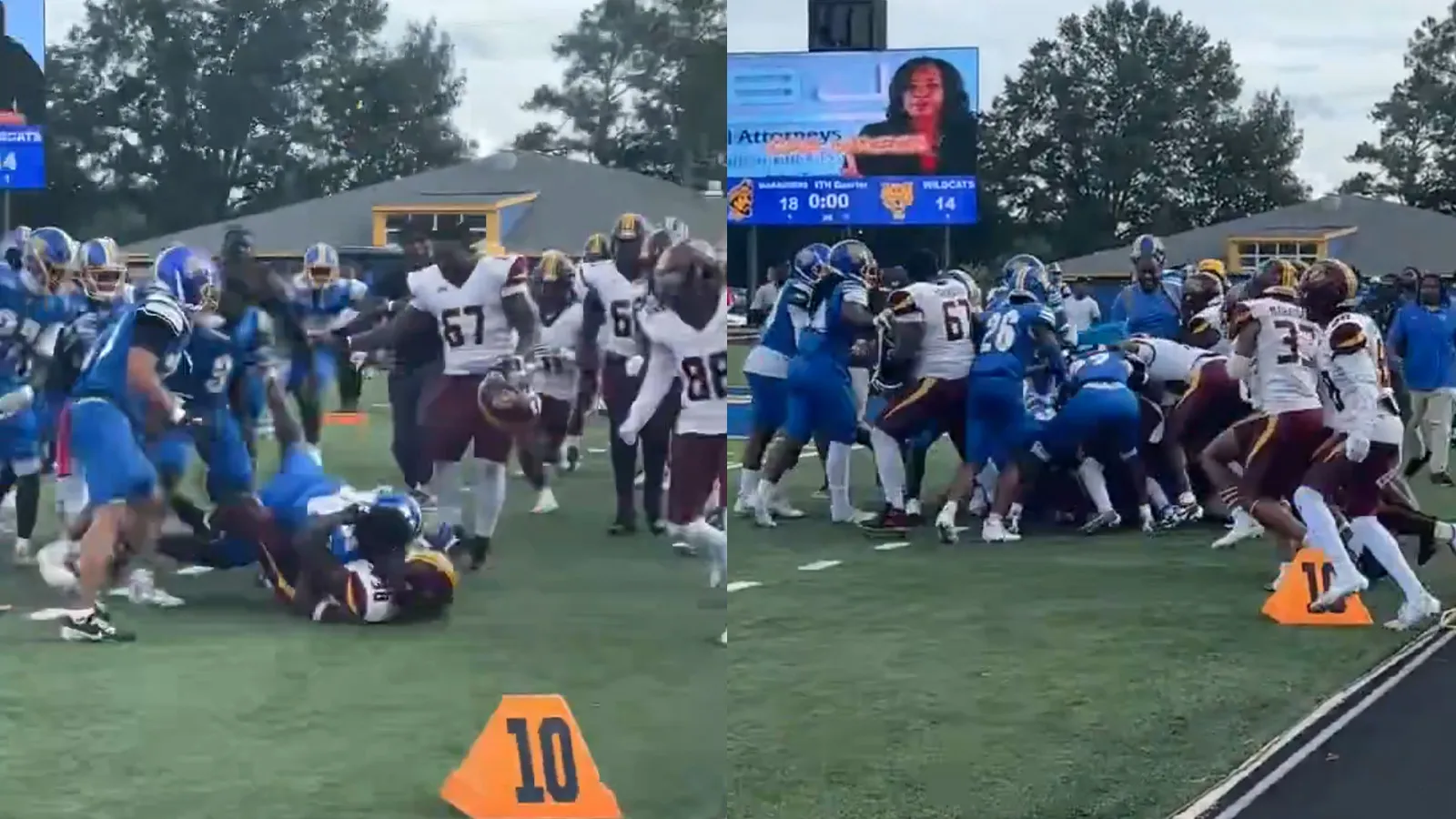
The Southern Intercollegiate Athletic Conference (SIAC) has fined two universities and issued suspensions to 20 players and two coaches following a postgame fight that broke out during Fort Valley State University’s (FVSU) homecoming football game against Central State University (CSU) on Saturday.
According to a statement released Monday, nine Fort Valley State players and 11 from Central State have been suspended for one game. FVSU head coach Marlon Watson and CSU head coach Tony Carter will also serve one-game suspensions. The SIAC did not disclose the amount of the fines issued to either program, citing conference bylaws.
“Acts of unsportsmanlike conduct have no place in intercollegiate athletics or within the Southern Intercollegiate Athletic Conference,” said SIAC Commissioner Anthony Holloman. “I am extremely disappointed that this incident has overshadowed what was otherwise a very competitive football game.”
FVSU, located about 28 miles southwest of Macon, apologized in a statement, saying the fight “does not reflect the values of sportsmanship, integrity, and respect that we uphold as an institution, athletic program, and conference.”
The university added that steps are being taken to ensure athletes understand the importance of representing the Wildcats “with pride and professionalism on and off the field.”
The SIAC said its review determined both institutions violated the league’s code of ethics and conduct. Conference officials emphasized a zero-tolerance policy toward unsportsmanlike behavior and stated they will continue to strengthen measures that discourage such incidents.
A video of the altercation has since gone viral across social media platforms, drawing widespread attention and criticism. The fight marks another controversy for Fort Valley State, which recently faced hazing allegations involving its university band. Several individuals have been arrested in connection with that separate investigation.
“We remain committed to learning from this experience and reinforcing the principles that define what it means to be a Wildcat,” FVSU said.
Campus
The Capitol Battle of the Bands 2025
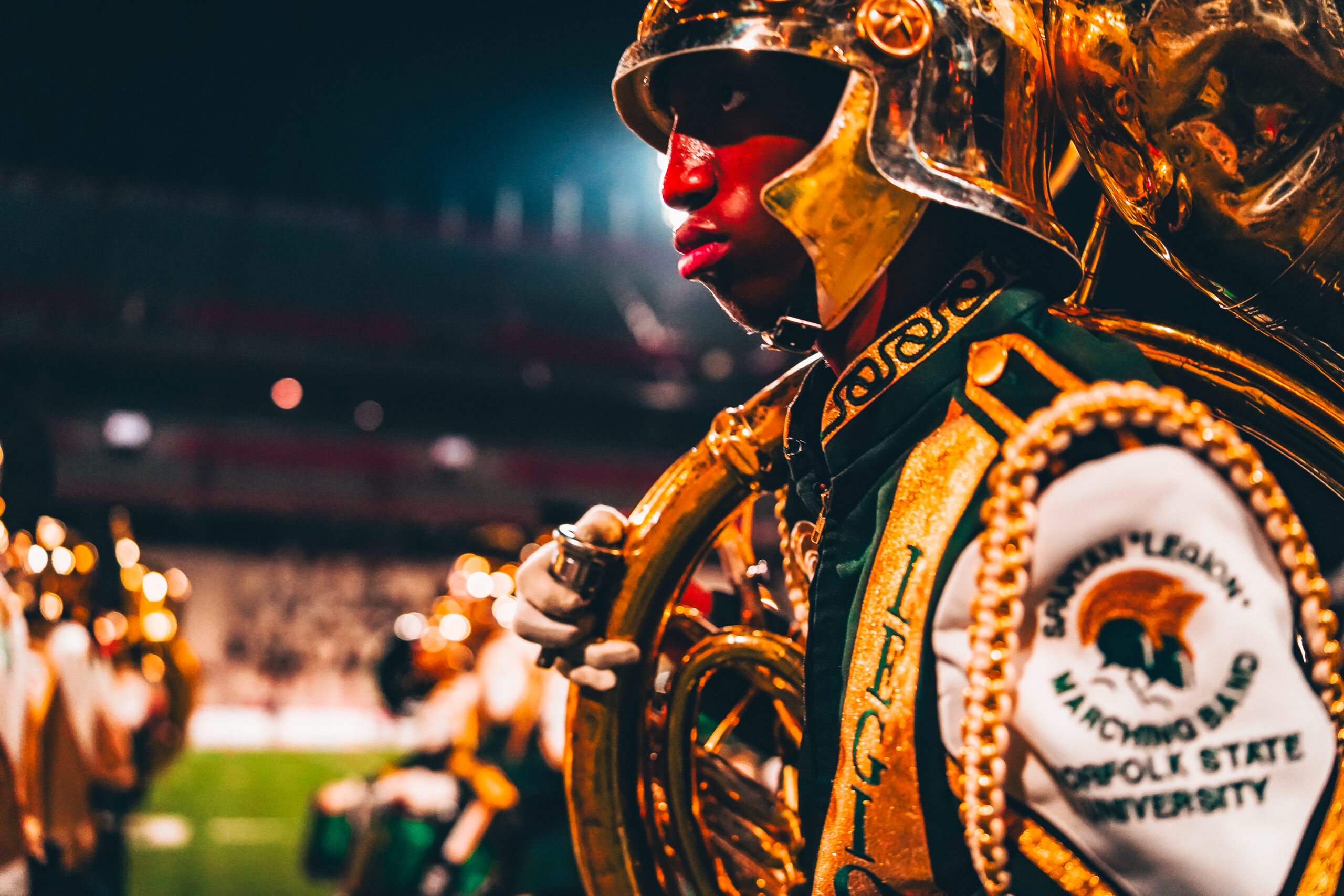
Hosted by High Stepping Nationals | SECU Stadium – College Park, Maryland
The air in College Park was thick with rhythm, pride, and school spirit as the Capitol Battle of the Bands took over SECU Stadium. Hosted by High Stepping Nationals, this electrifying event brought together some of the most dynamic marching bands, drumlines, and spirit teams in the country — all under one roof, all for one culture.
From the first booming drumbeat to the final blast of brass, the stands shook with energy as crowds from across the East Coast gathered to witness HBCU greatness and local high school talent take center stage.
🎶 The Lineup
The field was blessed by the presence of elite bands including:
-
Norfolk State University Spartan Legion
-
North Carolina A&T Blue & Gold Marching Machine
-
Virginia State University Trojan Explosion
-
Winston-Salem State University Red Sea of Sound
-
Bowie State University Symphony of Soul
-
Hampton University Marching Force
-
Howard University Showtime Band
-
North Carolina Central University Sound Machine
-
PGCPS High School Pride, representing the best young talent across Prince George’s County
Each band brought their own flavor — from show-stopping arrangements and precision drills to heart-thumping drumline battles that left the crowd roaring.
💃🏽 The Spirit of the South
The cheerleaders, flag teams, and dance squads elevated the night with unmatched grace and attitude. From the Hampton Force dancers to the WSSU cheerleaders strutting into the stadium, every move reminded the audience that style, pride, and culture are at the heart of every performance.
🥁 The Drumline Faceoff
When Virginia State’s Trojan Explosion Drumline met Norfolk State’s Spartan Legion Drumline on the field, the night hit another level. Beats collided, sticks flew, and the energy was pure adrenaline. This was not just a battle — it was a statement.
🌟 PGCPS Pride
Representing Maryland’s future stars, the PGCPS High School Pride Ensemble showcased young musicians who are already marching toward excellence. Their performance was a reminder that the HBCU legacy is alive and growing strong in local schools.
🎥 Watch the Full Experience
Missed the live show? Don’t worry — you can relive every moment, every note, every move.
📺 Full Highlights: Watch now on YouTube – HBCU Original
🎬 YouTube Channel: @THEHBCUORIGINAL
Events
SWAC Fines Florida A&M $10K, Suspends PA Announcer After Game Day Drama
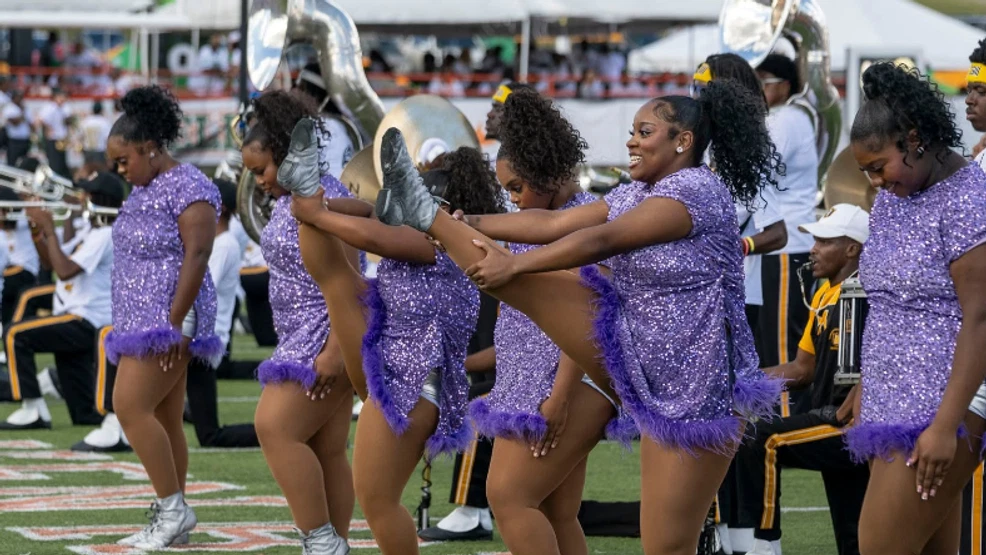
BIRMINGHAM, Ala. – SWAC Slaps Florida A&M with $10K Fine After PA System Gaffe
The Southwestern Athletic Conference (SWAC) is sending a strong message about respect and sportsmanship. Following inappropriate comments made over the public address system during Saturday’s football game against Alabama State University, Florida A&M University has been issued a public reprimand and a $10,000 fine.
The university’s public address announcer will also be sidelined for the next two football games. The announcer had referred to Alabama State’s plus-sized dance team, the Honey Beez, as “the new face of Ozempic,” a weight-loss drug—a remark widely criticized as body-shaming.
“Inappropriate conduct and invective language will always be met with strong action,” the SWAC said. “We take zero tolerance seriously, and this applies to all athletes, staff, and spectators—male or female.”
Florida A&M has apologized, emphasizing that the comment does not reflect the university’s values. The SWAC hopes this incident serves as a reminder that respect and sportsmanship are required across all competitions, including women’s sports.
-

 Sports1 month ago
Sports1 month agoCoppin State Hosts No. 2 South Carolina in Baltimore
-

 HBCU ORIGINAL4 weeks ago
HBCU ORIGINAL4 weeks ago🦁🐺 HBCU Original — Lincoln & Cheyney Deliver Big Performances at Widener Schuylkill Showdown
-
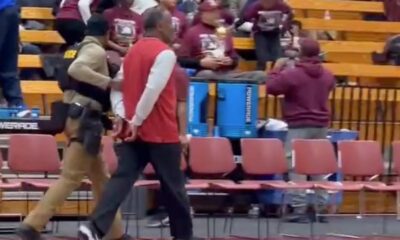
 HBCU ORIGINAL4 weeks ago
HBCU ORIGINAL4 weeks agoTuskegee Coach Benjy Taylor Escorted Off Court in Handcuffs After Postgame Incident
-
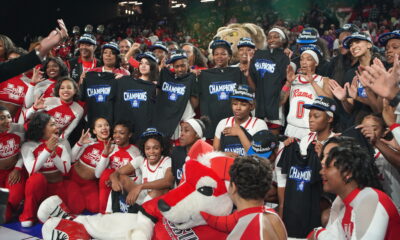
 HBCU ORIGINAL1 day ago
HBCU ORIGINAL1 day agoWinston-Salem State Makes History, Captures First CIAA Women’s Basketball Championship
-
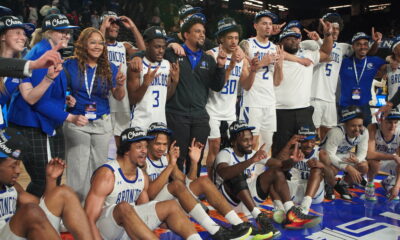
 HBCU ORIGINAL1 day ago
HBCU ORIGINAL1 day agoFayetteville State Rallies Late to Capture 2026 CIAA Men’s Basketball Championship
-

 HBCU ORIGINAL2 days ago
HBCU ORIGINAL2 days agoBluefield State Survives Virginia State Rally, Advances to CIAA Championship Game
-
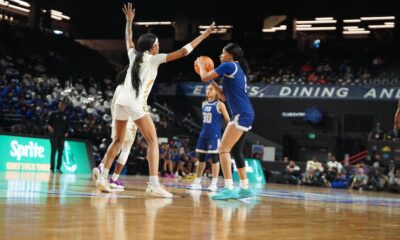
 HBCU ORIGINAL2 days ago
HBCU ORIGINAL2 days agoFayetteville State Outlasts Bowie State, Advances to CIAA Women’s Championship
-

 HBCU ORIGINAL2 days ago
HBCU ORIGINAL2 days agoWinston-Salem State Dominates Claflin, Advances to CIAA Women’s Championship
